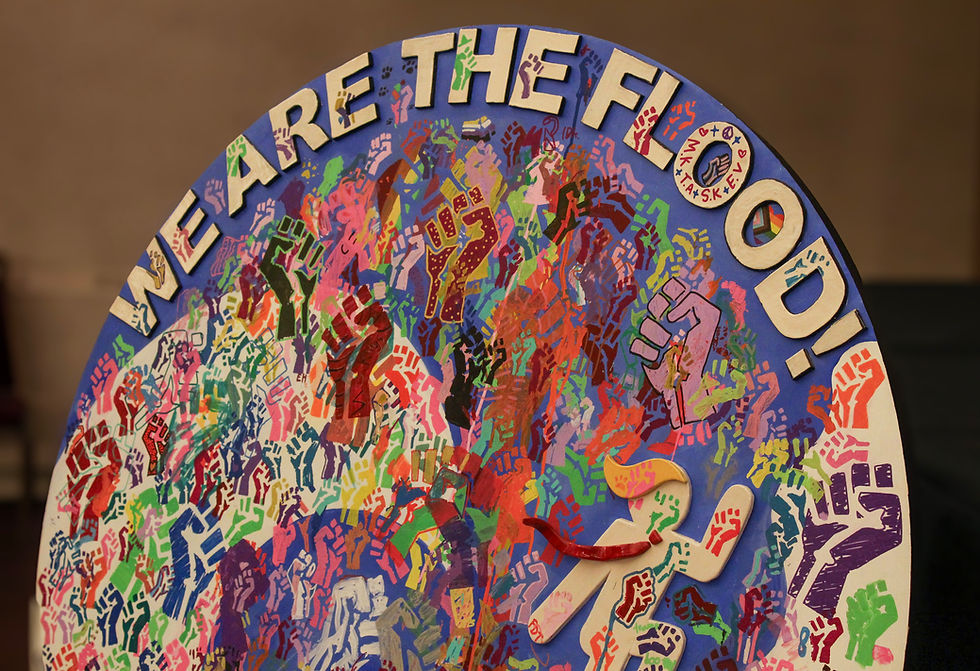Interview with ASWU President-elect Giovanni Bautista
- Collegian staff
- Apr 19, 2021
- 4 min read
Updated: Oct 22, 2021
Chrissy Ewald
Staff writer

The Willamette College of Arts & Sciences (CAS) student body elected Giovanni Bautista (’22) as the 2021-22 Associated Students of Willamette University (ASWU) President. The Collegian spoke to Bautista about his plans for next year, including how ASWU plans to address lack of engagement in student government processes, the transition back to fully in-person learning and ASWU’s continuing efforts to combat racism.
Bautista was appointed to fill an empty seat as an ASWU senator for the class of 2022 in October 2020 at the request of Vice President Mary Robicheaux (’22), a seat he will continue to hold until his transition to the presidency at the end of this semester. One of his first actions as a Senator was to help draft the [anti-racism bill] that requires all ASWU-affiliated student organizations to attend ASWU-hosted anti-racism training and submit annual anti-racism plans.
Bautista ran on a [four-point platform] that he plans to implement while in office. The platform consists of advancing racial equity, increasing transparency in ASWU, increasing emergency preparedness and helping make the transition back to fully in-person learning “seamless.”
As part of ASWU’s continuing efforts to combat racism, Bautista said he will continue executing ASWU’s anti-racism bill: “These discussions have begun this year, but I don’t think they should stop at just having the discussion once and then moving on. I think both anti-racism and equity need to be integrated into the larger processes that students are engaged with. I think that it would be beneficial for the student body to incorporate an equity lens and an anti-racist lens to their activities.”
When asked whether there is a mechanism in place to evaluate whether club and organization anti-racism plans have been effective, Bautista said there are currently “no plans to follow up with that.” He said in the future, ASWU might look into creating opportunities to follow up on anti-racism plans by surveying club members on “how they feel these trainings or anti-racist plans have informed their work and how they notice that it’s made a difference, or it hasn’t made a difference. And then ASWU should reassess whether they should expand it.” Bautista emphasized the importance of student engagement and feedback in the process of ensuring anti-racism efforts are successful.
When asked about lack of student engagement in ASWU, Bautista emphasized the need for ASWU to communicate directly with the student body because students might not understand the role ASWU plays on campus. “Through no one's fault, students often get lost in what's going on and what structures affect them,” Bautista said, attributing that to how busy Willamette students are with classes, sports and extracurriculars. As ASWU president, Bautista said he will have a unique capability to communicate with the student body.He specifically discussed use of social media, including his campaign account, and email listservs. Bautista said he also hopes ASWU’s recent [restructuring] efforts will boost engagement and make Senatorial elections more competitive.
Next year, Willamette plans to be fully in-person, which will enable in-person ASWU meetings and events. While Bautista said he appreciates the flexibility that Zoom provides, especially for students who live off-campus, he hopes that having in-person meetings next year will help increase attendance. “[After] hours of classes online and maybe other meetings, sometimes the last thing you want at the end of the day, especially at 7:00 [p.m.], is to be on another Zoom call. So it's completely understandable that that plays a role in our current engagement—hopefully being in person can mitigate that [and] won't result in Zoom fatigue,” Bautista said.
Bautista has begun transition meetings with current ASWU President Claire Mathews-Lingen (‘21), which will continue throughout the summer “to try to ensure that [executive officers] are in an informed position going into the fall and prepared for the responsibilities” of their positions, said Bautista.
Bautista discussed the varying impact of technology as a means of responding to natural disasters. In the Sept. 2020 wildfires, having Zoom capabilities was helpful because the university was “able to quickly move students and professors online and away from the hazardous conditions outside,” Bautista said. “I think going forward, even in a post-pandemic world, we should continue to utilize such technologies to our advantage.” However, the Feb. 2021 ice storm proved that digital learning has weaknesses. “The university needs to be adaptive and really flexible and approach these different situations that might arise,” Bautista said. Decisions on the correct response to different emergencies “need to be informed by past experience but also inclusive of the student body’s perspective. Again, I think that’s why student representation on committees is so important.”
Bautista “strongly condemned” white supremacist hate group activities that have taken place recently at the Oregon State Capitol, saying they have “no place in our campus community, and they are antithetical to Willamette values.” Bautista said the “Unite Against Hate” event that took place on Apr. 15 would for him be “a great opportunity to hear where [anti-racism] conversations are at and where there's room for improvement.”
Bautista encouraged students to reach out to him via email at <gbautista> for any questions. Next year, he plans to have office hours in Putnam University Center (UC) open to any student. Bautista said: “I would also encourage students to get involved with the different roles [available] on campus, such as serving on university committees or serving as an ASWU Senator. That helps shape the experience not just for themselves, but for their peers as well.”




Comments